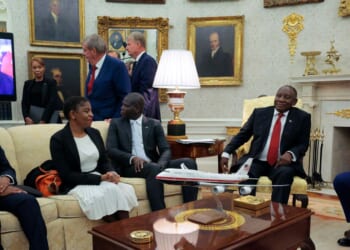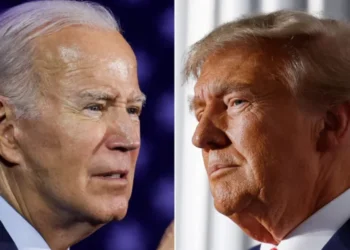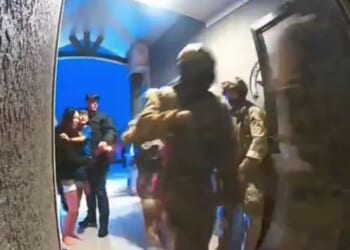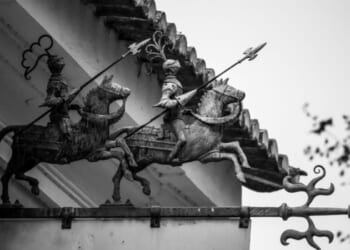Simply the fact that the aircraft is coming from abroad, from an uncertain regulatory environment, raises the possibility that it could be tainted in some respect.
The Department of Defense has formally accepted a Boeing 747-8 jet from the Qatari royal family that President Trump hopes to use as his new Air Force One. Before Trump can use the Qatari jet, though, the Pentagon will need to modify the aircraft to meet the demanding specifications required of the president’s transport.
“The Department of Defense will work to ensure proper security measures and functional-mission requirements are considered for an aircraft used to transport the President of the United States,” Pentagon spokesman Sean Parnell said in a statement. According to Parnell, the US Air Force will be responsible for modifying the aircraft—and is expected to award a contract to a US firm to make the required changes. The exact modifications needed for the aircraft have not been publicly disclosed.
“As we lay out the plan, we will make sure that we do what’s necessary to ensure the aircraft is fit to carry the president with all the communications, safety, and self-defense measures required,” said Air Force Secretary Troy E. Meink. These modifications could cost US taxpayers in excess of $1 billion.
The gifted jet aircraft, valued around $400 million, raises questions about foreign political influence on the Trump administration—as well as the ethics of accepting a plane that, due to the structuring of the gift, appears to be for Trump’s personal use.
Does the Qatari Plane Gift Violate the Emoluments Clause?
The Emoluments Clause of the US Constitution (Article I, Section 9, Clause 8) prohibits federal officials from accepting gifts, payments, or other benefits from foreign governments without the consent of Congress. The Emoluments Clause is designed to prevent foreign influence and corruption, to ensure that officials prioritize national interests over personal benefits.
Predictably, Trump’s acceptance of a $400 million luxury airliner from a foreign government—for which he notably did not seek the consent of Congress—has raised Emoluments Clause-related concerns. Whether or not the president has actually violated the clause, though, seems to depend on who one asks. Representative Jamie Raskin (D-Md.) has opened an inquiry into the gifted plane, suggesting that the acceptance violates the Constitution.
It is certain that the gift of the plane would be far less controversial if Trump had not added the proviso that after his term ends, the 747 will be donated to his presidential library—meaning that he will continue to have personal access to the jet once he leaves office. In effect, this transforms the gift from a presidential one to a personal one, and raises significant concerns about the Emoluments Clause.
Could the Qatari Plane Come With Security Risks?
Of course, accepting a foreign-donated presidential plane necessarily raises security questions. Simply the fact that the aircraft is coming from abroad, from an uncertain regulatory environment, raises the possibility that it could be tainted in some respect.
Of course, the Air Force will execute its due diligence upon receiving the jet, to make sure the aircraft is perfectly safe. Still, a seed of doubt has been planted that would not exist were the jet coming off the line in Seattle. Moreover, some critics of the deal are raising questions about the potential for using the jet for espionage purposes, like electronic surveillance or data collection—though the scandal if this were to emerge would seriously endanger the US-Qatar relationship, an outcome that no leader in Doha is likely to risk.
Espionage aside, the gifted 747 will need to undergo security-enhancing modifications, especially with respect to bolstering the jet’s electromagnetic pulse hardening and self-defense suites, which are standard on current Air Force One models. Given the urgent timeline that Trump is imposing on the project, it is unclear if the Air Force will be able to modify the jet to the highest standards while sticking to Trump’s insisted timeline.
About the Author: Harrison Kass
Harrison Kass is a defense and national security writer with over 1,000 total pieces on issues involving global affairs. An attorney, pilot, guitarist, and minor pro hockey player, Harrison joined the US Air Force as a Pilot Trainee but was medically discharged. Harrison holds a BA from Lake Forest College, a JD from the University of Oregon, and an MA from New York University. Harrison listens to Dokken.
Image: Wikimedia Commons.
















